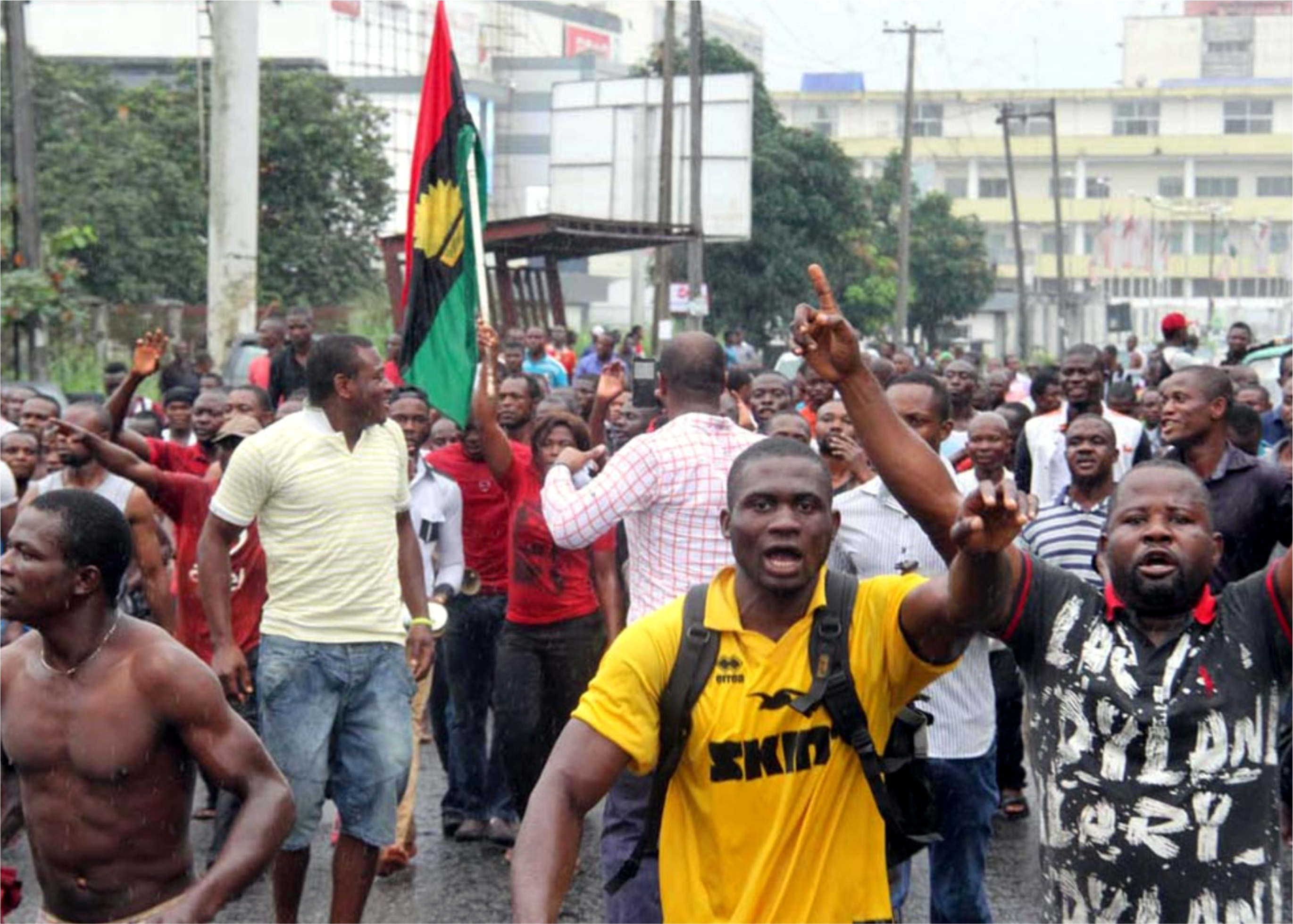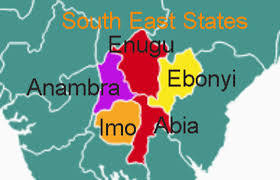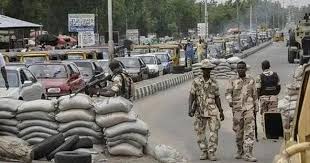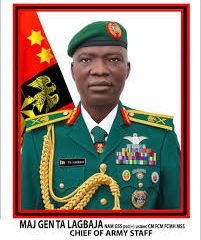Editorial Opinion
Britain, EU referendum and Biafra agitation
Published
10 years agoon
By
Olu Emmanuel
JUNE 23rd 2016 will remain a defining moment in world’s political history for the monumental decision of over 48million British voters who thronged the polling booths to democratically decide the future of Great Britain as a member of the European Union.
The majority voted to opt out of the European Union.
For purposes of clarity we will consult the British Telegraph to understand what the European Union stands for so we proceed to establish a nexus between the mass revolution that just took place in Great Britain Vis-à-vis the peaceful agitation for a separate state of Biafra by a section of Nigerians and the unfortunate brutal and violent suppression by the Nigerian State under President Muhammadu Buhari of these otherwise very peaceful campaign which could have and should be resolved through a peaceful referendum.
Why was the EU created? After the Second World War there was a new movement to create unity between Germany and France, which would ultimately lay the foundations for the European Union four decades later. But when was the EU formed? The EU can trace its origins from the European Coal and Steel Community (ECSC) and the European Economic Community (EEC), formed in 1951 and 1958 respectively by the Inner Six countries of Belgium, France, West Germany, Italy, Luxembourg and the Netherlands.
We are reliably informed that the French foreign minister Robert Schuman led the formation of the ECSC with the Schuman Declaration in May 1950. The organisation was a forerunner of several other European Communities and what is now the European Union.
Coming nearer to addressing the issues around the the exact date the European Union was established under its current name, Telegraph a respected Newspaper in Great Britain said it was in 1993 following the Maastricht Treaty.
Since then the community, according to them, EU has grown in size because of the accession of new member states.
The latest major amendment to the constitutional basis of the EU, the Treaty of Lisbon, came into force in 2009. To the most salient issue of the membership strength of the EU it is a factthat the European Union as an economic and political union of is made up of 28 countries.
A review of the historicity or historical facts around the foundation of Nigeria shows that essentially, the divergent components that eventually got amalgamated in 1914 to constitute the present day Nigeria were indeed brought together purely to service the economic interests of Britain and the Western World.
A researcher contributing to the website of Wikipedia wrote that the founding of modern day Nigeria as stated above was tied to the apron strings of drawing us closer to Western Civilization and this goes to the fundamentals of why it is imperative that the current political office holders at the center of Nigeria must constructively deploy peaceful and democratic means to arrive at a determination of the growing agitations by the different interest groups in Nigeria for a renegotiation of Nigeria.
ALSO SEE: Biafra: Orji Kalu rekindles hope for Kanu’s freedom
The indigenous people of Biafra (IPOB) is one such bloc made up essentially of youth around the world who originally came from South Eastern Nigeria. Yoruba has the OODUA people’s Congress and the North has the Arewa Youth Congress all of which at one point or the other constructively mooted the idea of a fundamental restructuring or renegotiation of the geopolitical status of the Federation of Nigeria which as can be deciphered from documented history is a product of Europeans.
The Wikipedia’s entry on the processes leading to the amalgamation in 1914 of Nigeria which pointed to the similarities between the various referendums in Great Britain and the agitations for the restructuring of Nigeria stated emphatically is self explanatory thereby providing intellectual support for the call for peaceful restructuring of Nigeria.
The writers stated thus: “The British economic policy for Africa at the time was founded on the belief that if African peoples were brought to embrace European civilisation with its emphasis on law and order their economic resources would be more effectively and thoroughly exploited to the benefit of all.”
“It was optimistically and simplistically believed that the problem of African economic development was largely the problem of law and order; that once the slave trade was suppressed the chaos and anarchy believed to be the bane of life in Africa would disappear and African endeavour would be channeled to the collection of the national produce of the tropical forest for the satisfaction of European needs.”
Conversely, the Europeans who forced the amalgamation of Southern and Northern Protectorates to result in tgr formation of Nigeria in 1914 held the Eurocentric view that Africans by themselves were incapable of maintaining law and order to the level needed to bring about the much-desired economic revolution, and that only European rule could do it.
To the designers of Nigeria from the West it was not enough for the colonial power to impose and maintain law and order though. It was also necessary to promote and develop free movement and natural growth and trade. Also it was the generally accepted assumption that the economic efforts and products of a colony should supplement, rather than compete with or undermine, the economic efforts and products of the metropolitan country. This was a survival of the mercantilist system which had come to grief in the last quarter of the eighteenth century. I agree with this intellectual summation.
Factually, Southern Nigeria was a British protectorate in the coastal areas of modern-day Nigeria formed in 1900 from the union of the Niger Coast Protectorate with territories chartered by the Royal Niger Company below Lokoja on the Niger River. The Lagos colony was later added in 1906, and the territory was officially renamed the Colony and Protectorate of Southern Nigeria. In 1914, Southern Nigeria was joined with Northern Nigeria Protectorate to form the single colony of Nigeria.
ALSO SEE: Igbo’ll actualise Biafra peacefully – IPOB
The unification as aforementioned was done for economic reasons rather than political—Northern Nigeria Protectorate had a budget deficit; and the colonial administration sought to use the budget surpluses in Southern Nigeria to offset this deficit. These conclusions are historically factual and accurate.
It is therefore my considered submission that Nigeria that came to be from the economic maneuverings of Colonial oppressors from Britain cannot be said to be cast -in -stone or non-negotiable when in fact Great Britain which artifically wielded us together for their selfish interests have had several referendums one of which has just resulted in the eventual divorce of Great Britain from the economic and political bloc of European Union.
The peaceful campaign by these young Nigerians should be subjected to democratic referendum to determine the eventual outcome.
It is a fallacy of hasty conclusion for anyone to believe that all South Easterners will opt for exit out of Nigeria or for the continuous stay since most people have their own decisions to make if a democratically and transparently organized referendum is to be conducted by an independent panel to be drawn from the United Nations. Moreover, the referendum will cover all of Nigeria since agitations for restructuring is nation-wide in scope.
The Nigerian Constitution which is thrown at our faces by those in the federal government with hard line attitudes towards agitations for restructuring of Nigeria, was even undemocratically written by a bunch of people handpicked by a military dictator General Sani Abacha who in the first place came to office through illegal means.
How then do we argue logically against such a simple task like holding a peaceful referendum on the restructuring of Nigeria?
Former Vice President Alhaji Atiku Abubakar has in his broad mindedness advocated restructuring of Nigeria so the citizens can derive maximum benefits if the democratic outcome is decided.
Atiku Abubakar from Adamawa State, who perhaps is one of the very few Nigerians to have properly integrated himself through marriage to both Igbo and Yoruba ladies, stated thus;
“As some of you may know, I have for a long time advocated the need to restructure our Federation. Our current structure and the practices heve been a major impediments to the economic and political development of Nigeria.”
Even when Alhaji Atiku Abubakar did not go as far left as advocating balkanization of Nigeria, certain reactionary elements in the current Nigerian Presidency kicked against this noble idea.
These same persons are behind the violent confrontations by security forces against peaceful Pro-Biafra protesters. Many youth are already lying cold dead in the mortuaries of South East Nigeria for simply taking part in peaceful marches.
If you like call it restructuring or separate statehood for the various contending components in Nigeria, the fact is that Nigeria is long overdue for fundamental reworking.
It is no longer acceptable that Nigeria is administered in such a way that one Section dominates all the mainstream defence and military related positions when othercomponent parts are short changed by the current federal government headed by President Muhammadu Buhari.
ALSO SEE: Blame Pro-Biafra agitators for Enugu killing – Tsav
It is also illogical to expect that even under the current distorted federal system some states violates the constitution by treating adherents of a certain religion as state religion even when section 10 of this Constitution of 1999 outlaws such practices.
It is evil to expect that the status quo should remain the way it is whereby the South East of Nigeria is allowed to look like a wasteland and the basic Federal government sponsored projects such as roads and major milestones like refineries are deliberately kept away from the South East even when the zone is crude oil rich.
This peaceful outcome of a political divorce between the UK and EU should teach us a lesson that we should not use brute force to suppress public discontents over skewed policies.
Let the government at the center deploy democratic means to market their position for a united Nigeria nation even as every efforts should be made which would be geared towards staging a transparent referendum across the country so all leading contending interests vote and decide the renegotiation and restructuring of Nigeria.
*Emmanuel Onwubiko is the Head of Human Rights Writers Association of Nigeria and blogs at www.huriwa.blogspot.com, www.emmanuelonwubiko.com.
You may like
Justice Travels, Nigeria Stalls


South East records lowest IGR after years of sit-at-home order


Igbo Council decries alleged extortion of travelers at 98 military check points in South East


Top 12 states of terrorism/secessionist cases in Nigeria 2023


Imo Police boost security at Secretariat amid IPOB threat


Nigerian Army threatens fierce response to killing of 5 soldiers in Abia
Trending

 Entertainment1 week ago
Entertainment1 week agoSinger Simi faces backlash after TikToker admits to false rape allegation

 Entertainment4 days ago
Entertainment4 days agoSimi addresses resurfaced 2012 tweets amid online backlash

 Comments and Issues7 days ago
Comments and Issues7 days agoNigeria’s Declining Oil Output and Soaring Foreign Portfolio Investment Inflow

 Comments and Issues7 days ago
Comments and Issues7 days agoEx-prince Andrew’s arrest, lessons for Nigeria

 Business1 week ago
Business1 week agoPENGASSAN warns Tinubu’s executive order on oil revenues could jeopardise 4,000 jobs

 Comments and Issues7 days ago
Comments and Issues7 days agoThe Seyi Tinubu’s jellof rice, loaves of bread

 Health6 days ago
Health6 days agoSCFN, LUTH introduce bone marrow transplants as curative treatment for sickle cell

 Football6 days ago
Football6 days agoHarry Kane nets brace as Bayern edge Frankfurt 3–2 to go nine points clear

